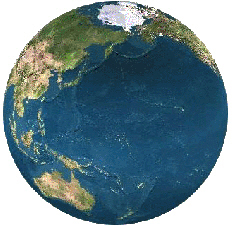 23 April 2008 MEDIA PERSPECTIVES 5th Meeting PM Session SEVENTH SESSION UN PERMANENT FORUM ON INDIGENOUS ISSUES OFFICIAL WEB SITE LISTEN TO DAILY AUDIO BROADCASTS OF THE 7TH SESSION OF THE UN PERMANENT FORUM 23 April 2008
The dbn.tv team in Canada and Spain wishes to thank the UN Audio Library and the Recording Room for their collaboration in making these sessions available around the world UN NEWS SERVICE - INDIGENOUS PEOPLES UN PRESS RELEASES AND MEDIA COVERAGE
Economic and Social Council DUMPING OF TOXIC WASTE ON INDIGENOUS LANDS, DAMAGE FROM MINING, DEFORESTATION AMONG ISSUES, AS INDIGENOUS FORUM DISCUSSION FOCUSES ON PACIFIC REGION Continuing its seventh annual session with a
half-day discussion on the Pacific, delegates to the Permanent Forum
on Indigenous Issues called for the Forum to take a more robust role
in inducing other parts of the United Nations system to carry out
mandates for securing the rights of the indigenous peoples in the
region.
PANELISTS Michael Dodson, Member of the Permanent Forum on Indigenous Issues from Australia; Collin D. Beck, Permanent Representative of the Solomon Islands; Tom Calma, Aboriginal and Torres Strait Islanders Social Justice Commissioner, Human Rights and Equal Opportunity Commission, Australia; and Malia Nobrega, Pacific Regional Caucus. Mr. DODSON noted that the Pacific islands were
home to a diverse range of indigenous peoples still linked to their
communal land and indigenous belief systems, which formed the
social, economic and political basis for their existence. However,
in some countries within the region, colonial settlement and
immigrants had reduced the population to a minority in their own
lands -- for example, the Kanaks of New Caledonia, who made up a
mere 44 per cent of the population; the Kanaka Maoli of Hawaii, 18
per cent; the Maori of New Zealand, 15 per cent; the Chamorro of
Guam, 14 per cent; and the Aboriginal and Torres Strait Islander
peoples of Australia, 2 per cent. The Rapa Nuia were becoming a
minority in their own community, swamped by mainland migrants from
Chile.
Colin D. Beck Mr. BECK ( Solomon Islands) said his region did not get much attention with the larger economy Asian countries casting it into the shadows, but it needed attention because climate change greatly affected the region. From time immemorial, the cultures and traditions of the islands had been connected to the elements. The people relied on forests and used all their natural resources to raise revenue, and global climate change had an enormous impact on that ability.
Tom Calma Mr. CALMA, Aboriginal and Torres Strait Islanders
Social Justice Commissioner in the Human Rights and Equal
Opportunity Commission of Australia, said there had been extremely
limited focus on human rights in the Pacific region, particularly in
areas that concerned minorities and women. Continuing, he said the
islands were vulnerable to one of two alternatives as a result of
global climate change, either disappearing or becoming homes to
environmental refugees. Malia Nobrega Ms. NOBREGA, Pacific Regional Caucus, said
violations of the rights of Pacific indigenous peoples by foreign
super-Powers, and even their own Governments, were mounting. For
example, although nuclear testing in the Pacific had officially come
to an end, problems of trans-shipment, storage and dumping of
nuclear wastes was still ongoing. |
|
Intro 2008 Opening 1st & 2nd Meetings | 3rd and 4th Meetings | 5th Meeting | 6th and 7th Meetings | 8th and 9th Meetings Kari-Oca Revisited |
dbn@dialoguebetweennations.com
Copyright Natalie Drache 1999




